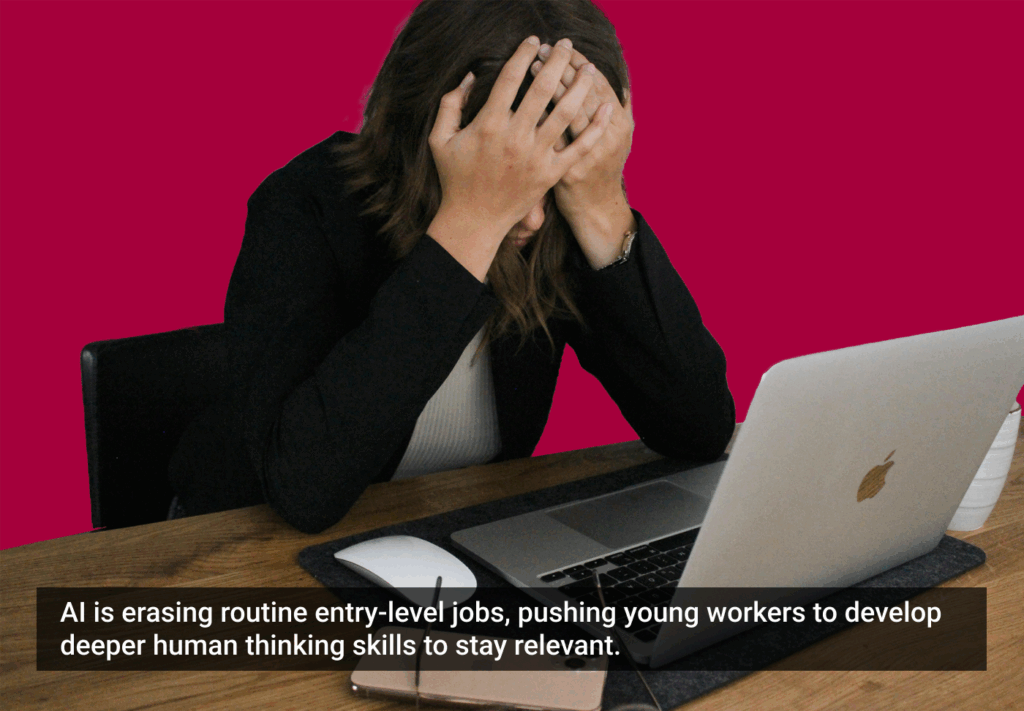Our creativity is a remix of everything we experience and absorb.
Enter AI. The ultimate mulching machine. All the world’s words, thoughts and images are instantly and infinitely remixed.
Should we be scared?
Having been around long enough to remember when digital printing was a disruption, I’ve learned we react in one of two ways.
Run toward. Or run away.
Early experiments yielding a “Drake” drop and endless Wes Anderson dupes have us all wondering how far (and how fast) things will go.
But really, AI is just another thing to help us remix our creativity.
A tool, not a terror.
Creating decks using Midjourney I value the extra time to think, rather than trawl Google images to make dodgy comps. Creative thoughts become prompts, but they have to be thought to begin with. Human and machine together.
There are other immediate uses of AI as a collaborator, not a competitor.
The planner asks ChatGPT for fresh visual metaphors to update tired slides.
The UI designer uses Galileo to create starting points. Then cherry-picking the best to distill a smart recommendation.
The copywriter crafting prompts to generate alternative headlines. Then applying a keen editor’s eye to the results.
Using such tech now, even in these formative ways, will help us learn and evolve with it.
Run toward. And run fast.
We must keep up, for ourselves and the brands we work with.
The dim view says we’re the monkeys at the keyboard, inadvertently training our future overlords.
Or you could take the stance that AI assimilates what exists and so our originality will be more prized than ever.
Like any tool, it’s in finding creative ways to use it.
A year ago we planned to ‘veganise’ the world’s cookbooks. Time and cost killed it.
This year we made the Yellow Sticker Cookbook in weeks.
With the right human inputs, AI can make the cool stuff at the back of the pitch deck happen.
But, in a fragmented marketing funnel, there’s also a risk it could industrialize the whole customer experience.
From buying a sofa to booking travel. Product research to buying recommendations. All automated and personalised.
Customers could soon be clicking to approve a robot’s suggestions. That risks a free-fall to average. To indistinguishable. To mulch.
This is why the things we have always done to make brands famous and customers loyal are more vital than ever.
We just need to remix them.








